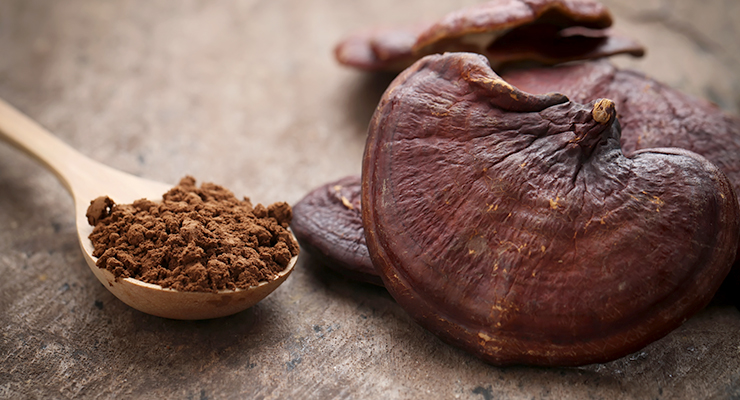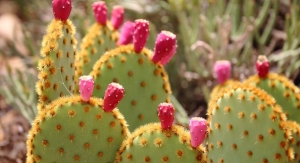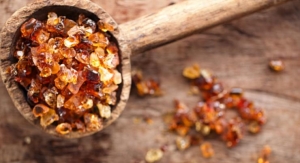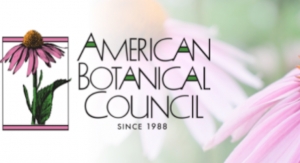By Holly Johnson, PhD, American Herbal Products Association (AHPA)09.08.20
The American Herbal Products Association (AHPA) regularly reviews scientific literature for new research that may be useful to the herbal products and supplement industries. The following are some recent articles published in peer-reviewed journals.
Medicinal Mushrooms: Current Use in Clinical Practice
This study investigated various uses of medicinal mushrooms in current clinical practice. The authors noted that mushrooms have been the subject of extensive research and are frequently used to help support immune function or to help patients with viral infections, cancer, cognitive concerns, and other health conditions. Each of these areas provides insights into how these mushrooms work, and might help patients achieve better health. The authors concluded that medicinal mushrooms have numerous applications in clinical practice and can be considered for people seeking enhanced immune function, defense against viral infection, protection from cancer or from the side effects associated with oncologic treatment, or even improved cognitive function.
June 2020, Alternative and Complementary Therapies
https://doi.org/10.1089/act.2020.29275.kha
Prebiotic Potential of Hemp Blended Drinks Fermented by Probiotics
This work examined introducing new formulations of commercial hemp seed-derived drink to be fermented with probiotics (Lactobacillus fermentum, Lb. plantarum and Bifidobacterium bifidum). The prebiotic activity of different hemp seed drinks was assessed by cultural and quantitative PCR methods. To better describe the prebiotic potential, VOCs alkenes and volatile organic acids were characterized by a metabolomic approach via GC-MS SPME. Results showed that the hemp seed drinks had strong prebiotic activity, ability to support probiotics growth, and to increase the content of some bioactive compounds.
May 2020, Food Research International
https://doi.org/10.1016/j.foodres.2020.109029
Safety & Pharmacokinetics of Medical Cannabis Preparation in a Monocentric Series of Young Patients with Drug Resistant Epilepsy
This study set out to evaluate safety and pharmacokinetic parameters (PK) of medical cannabis in add-on for children and young adults with drug-resistant epilepsy. Two out of 10 patients stopped the treatment for adverse events (detected in 6/10: gastroenteric, sleep or behavioral disorders) and difficulties in drug supply. Minor ECG alterations in two patients and asymptomatic transient reductions of fibrinogen after 6 months of therapy were observed. Despite limitations, this study showed a good safety profile of medical cannabis in children and young patients with drug-resistant epilepsy and encouraged the possibility of further studies with oral cannabis-based drugs. The correlations between THC-CBD plasma concentrations and their administered dosages underlined the need of a therapeutic drug monitoring for cannabinoids therapy.
June 2020, Complementary Therapies in Medicine
https://doi.org/10.1016/j.ctim.2020.102402
Effect of Tart Cherry Concentrate on Endurance Exercise Performance: A Meta-Analysis
This review looked to evaluate the effect of tart cherry juice on endurance exercise performance with meta-analysis. Eligibility criteria were randomized controlled trials with endurance exercise performance tests. Interventions included tart cherry supplementation and placebo ingested before and/or on the day of exercise. Ten studies were included (totaling 127 males and 20 females). The results indicated tart cherry concentrate in juice or powdered form, ingested for 7 days to 1.5 hours before exercise performance testing significantly improved endurance exercise performance (SMD: 0.36; 95% CI: 0.07 to 0.64; p = 0.01; I 2 = 0%) upon pooling of the 10 studies.
January 2020, Journal of the American College of Nutrition
https://doi.org/10.1080/07315724.2020.1713246
Extraction as a Critical Step in Phytochemical Analysis
This study aimed to describe and compare the most commonly used methods of extraction, both traditional/conventional and innovative/green, within phytochemical analysis. The focus was on the principles behind each method and on their strengths and limitations in order to help evaluate their suitability and economic feasibility, highlighting the advantages of new innovative techniques over conventional extraction procedures. The recent application of deep eutectic solvents as a new, eco-friendly method for the extraction of bioactive compounds from natural matrixes was also discussed.
April 2020, Journal of AOAC International
https://doi.org/10.5740/jaoacint.19-0251
The Influence of Nigella Sativa for Asthma Control: A Meta-Analysis
This study conducted a systematic review and meta-analysis to explore the influence of Nigella sativa supplementation on asthma control. It searched PubMed, EMbase, Web of science, EBSCO, and Cochrane library databases through June 2019 for randomized controlled trials (RCTs) assessing the efficacy of Nigella sativa supplementation for asthma control. This meta-analysis was performed using the random-effect model. Four Randomized Control Trials (RCTs) were included in the meta-analysis. It found that overall, compared with control group for asthma, Nigella sativa supplementation was associated with increased Asthma Control Test (ACT) scores and concluded that Nigella sativa supplementation may provide additional benefits for the treatment of asthma.
November 2019, The American Journal of Emergency Medicine
https://doi.org/10.1016/j.ajem.2019.11.036
Therapeutic Potential of Nigella Sativa Preparations & Constituents in Diabetes Management
This up-to-date, comprehensive, systematic review evaluated and summarized all research studies in the field in order to clarify the magnitude of Nigella sativa (N. sativa) effects on the management of Diabetes mellitus (DM) and its complications. It was found that dietary supplementation with N. sativa preparations can improve various secondary complications of diabetic patients. N. sativa preparations possess antidiabetic, hypoglycemic, anti-hyperlipidemic, antihypertensive, and anti-obesity effects. Beneficial effects of N. sativa preparations include restoration of the antioxidant defense systems, increase in the activity of antioxidant enzymes, decrease of inflammatory biomarkers, suppression of the production of pro-inflammatory mediators, improvement of endothelial dysfunction, and hepatic, kidney, heart and immune system functions.
May 2020, Complementary Therapies in Medicine
https://doi.org/10.1016/j.ctim.2020.102391
NMR Based Quantitation of Cycloartane Triterpenes in Black Cohosh Extracts
This study used quantitative proton nuclear magnetic resonance (qHNMR) to investigate the cycloartane triterpene content in the roots/rhizomes (RR) and aerial parts (PX) of Actaea racemosa (AR), A. podocarpa (AP), and A. cordifolia (AC). It was demonstrated that qHNMR represents a powerful methodology for the analysis of crude plant extracts as it does not rely on the rarely available identical reference triterpenes. Specifically, the presence of the characteristic C-19 cyclopropane (exo/endo) hydrogen signals made it possible to quantify the less common/not ubiquitously present group of cycloartane triterpenes, directly in extracts. An example is presented for the identification of specific cycloartanes as marker compounds for AR within crude extracts based on the same qHNMR spectra and 2D NMR methods.
March 2020, Fitoterapia
https://doi.org/10.1016/j.fitote.2019.104467
Traditional Uses, Phytochemistry and Pharmacological Activities of the Genus Cinnamomum (Lauraceae): A Review
This study investigated the pharmacological activities of the genus Cinnamomum and found that it manifested a wide range of pharmacological properties including antimicrobial, antioxidant, anti-inflammatory and analgesic, antitumor, anti-diabetic and anti-obesity, immunoregulation, insecticidal and acaricidal, cardiovascular protective, cytoprotective, as well as neuroprotective properties both in vivo and in vitro. The article highlighted the traditional uses, phytochemistry and pharmacological properties of the few studied taxa of Cinnamomum through searching for the pieces of literature both at home and abroad, which would provide a reference for the pharmaceutical research and clinical application of this genus.
October 2020, Fitoterapia
https://doi.org/10.1016/j.fitote.2020.104675
Holly Johnson, PhD
American Herbal Products Association (AHPA)
Holly E. Johnson PhD, is the chief science officer at the American Herbal Products Association (AHPA) where she is the primary scientific resource for the organization, providing individualized technical guidance to member organizations and helping the herbal industry use the latest science, technology and research to ensure consumers continue to have informed access to innovative, safe and effective herbal products. Dr. Johnson took her PhD in Pharmacognosy at the College of Pharmacy, University of Illinois – Chicago (UIC), under renowned Pharmacognosist and researcher Dr. Norman Farnsworth. She is currently a Research Associate with the National Tropical Botanical Garden and serves on AOAC Stakeholders Panels and Expert Review Panels for Foods and Dietary Supplements. She is a member of the USP Medical Cannabis Expert Panel, the Editorial Board of the AOAC International Journal, and also serves on the Advisory Boards of the American Botanical Council and the American Herbal Pharmacoepia. She can be reached at hjohnson@ahpa.org; 301-588-1171, ext. 103.
Medicinal Mushrooms: Current Use in Clinical Practice
This study investigated various uses of medicinal mushrooms in current clinical practice. The authors noted that mushrooms have been the subject of extensive research and are frequently used to help support immune function or to help patients with viral infections, cancer, cognitive concerns, and other health conditions. Each of these areas provides insights into how these mushrooms work, and might help patients achieve better health. The authors concluded that medicinal mushrooms have numerous applications in clinical practice and can be considered for people seeking enhanced immune function, defense against viral infection, protection from cancer or from the side effects associated with oncologic treatment, or even improved cognitive function.
June 2020, Alternative and Complementary Therapies
https://doi.org/10.1089/act.2020.29275.kha
Prebiotic Potential of Hemp Blended Drinks Fermented by Probiotics
This work examined introducing new formulations of commercial hemp seed-derived drink to be fermented with probiotics (Lactobacillus fermentum, Lb. plantarum and Bifidobacterium bifidum). The prebiotic activity of different hemp seed drinks was assessed by cultural and quantitative PCR methods. To better describe the prebiotic potential, VOCs alkenes and volatile organic acids were characterized by a metabolomic approach via GC-MS SPME. Results showed that the hemp seed drinks had strong prebiotic activity, ability to support probiotics growth, and to increase the content of some bioactive compounds.
May 2020, Food Research International
https://doi.org/10.1016/j.foodres.2020.109029
Safety & Pharmacokinetics of Medical Cannabis Preparation in a Monocentric Series of Young Patients with Drug Resistant Epilepsy
This study set out to evaluate safety and pharmacokinetic parameters (PK) of medical cannabis in add-on for children and young adults with drug-resistant epilepsy. Two out of 10 patients stopped the treatment for adverse events (detected in 6/10: gastroenteric, sleep or behavioral disorders) and difficulties in drug supply. Minor ECG alterations in two patients and asymptomatic transient reductions of fibrinogen after 6 months of therapy were observed. Despite limitations, this study showed a good safety profile of medical cannabis in children and young patients with drug-resistant epilepsy and encouraged the possibility of further studies with oral cannabis-based drugs. The correlations between THC-CBD plasma concentrations and their administered dosages underlined the need of a therapeutic drug monitoring for cannabinoids therapy.
June 2020, Complementary Therapies in Medicine
https://doi.org/10.1016/j.ctim.2020.102402
Effect of Tart Cherry Concentrate on Endurance Exercise Performance: A Meta-Analysis
This review looked to evaluate the effect of tart cherry juice on endurance exercise performance with meta-analysis. Eligibility criteria were randomized controlled trials with endurance exercise performance tests. Interventions included tart cherry supplementation and placebo ingested before and/or on the day of exercise. Ten studies were included (totaling 127 males and 20 females). The results indicated tart cherry concentrate in juice or powdered form, ingested for 7 days to 1.5 hours before exercise performance testing significantly improved endurance exercise performance (SMD: 0.36; 95% CI: 0.07 to 0.64; p = 0.01; I 2 = 0%) upon pooling of the 10 studies.
January 2020, Journal of the American College of Nutrition
https://doi.org/10.1080/07315724.2020.1713246
Extraction as a Critical Step in Phytochemical Analysis
This study aimed to describe and compare the most commonly used methods of extraction, both traditional/conventional and innovative/green, within phytochemical analysis. The focus was on the principles behind each method and on their strengths and limitations in order to help evaluate their suitability and economic feasibility, highlighting the advantages of new innovative techniques over conventional extraction procedures. The recent application of deep eutectic solvents as a new, eco-friendly method for the extraction of bioactive compounds from natural matrixes was also discussed.
April 2020, Journal of AOAC International
https://doi.org/10.5740/jaoacint.19-0251
The Influence of Nigella Sativa for Asthma Control: A Meta-Analysis
This study conducted a systematic review and meta-analysis to explore the influence of Nigella sativa supplementation on asthma control. It searched PubMed, EMbase, Web of science, EBSCO, and Cochrane library databases through June 2019 for randomized controlled trials (RCTs) assessing the efficacy of Nigella sativa supplementation for asthma control. This meta-analysis was performed using the random-effect model. Four Randomized Control Trials (RCTs) were included in the meta-analysis. It found that overall, compared with control group for asthma, Nigella sativa supplementation was associated with increased Asthma Control Test (ACT) scores and concluded that Nigella sativa supplementation may provide additional benefits for the treatment of asthma.
November 2019, The American Journal of Emergency Medicine
https://doi.org/10.1016/j.ajem.2019.11.036
Therapeutic Potential of Nigella Sativa Preparations & Constituents in Diabetes Management
This up-to-date, comprehensive, systematic review evaluated and summarized all research studies in the field in order to clarify the magnitude of Nigella sativa (N. sativa) effects on the management of Diabetes mellitus (DM) and its complications. It was found that dietary supplementation with N. sativa preparations can improve various secondary complications of diabetic patients. N. sativa preparations possess antidiabetic, hypoglycemic, anti-hyperlipidemic, antihypertensive, and anti-obesity effects. Beneficial effects of N. sativa preparations include restoration of the antioxidant defense systems, increase in the activity of antioxidant enzymes, decrease of inflammatory biomarkers, suppression of the production of pro-inflammatory mediators, improvement of endothelial dysfunction, and hepatic, kidney, heart and immune system functions.
May 2020, Complementary Therapies in Medicine
https://doi.org/10.1016/j.ctim.2020.102391
NMR Based Quantitation of Cycloartane Triterpenes in Black Cohosh Extracts
This study used quantitative proton nuclear magnetic resonance (qHNMR) to investigate the cycloartane triterpene content in the roots/rhizomes (RR) and aerial parts (PX) of Actaea racemosa (AR), A. podocarpa (AP), and A. cordifolia (AC). It was demonstrated that qHNMR represents a powerful methodology for the analysis of crude plant extracts as it does not rely on the rarely available identical reference triterpenes. Specifically, the presence of the characteristic C-19 cyclopropane (exo/endo) hydrogen signals made it possible to quantify the less common/not ubiquitously present group of cycloartane triterpenes, directly in extracts. An example is presented for the identification of specific cycloartanes as marker compounds for AR within crude extracts based on the same qHNMR spectra and 2D NMR methods.
March 2020, Fitoterapia
https://doi.org/10.1016/j.fitote.2019.104467
Traditional Uses, Phytochemistry and Pharmacological Activities of the Genus Cinnamomum (Lauraceae): A Review
This study investigated the pharmacological activities of the genus Cinnamomum and found that it manifested a wide range of pharmacological properties including antimicrobial, antioxidant, anti-inflammatory and analgesic, antitumor, anti-diabetic and anti-obesity, immunoregulation, insecticidal and acaricidal, cardiovascular protective, cytoprotective, as well as neuroprotective properties both in vivo and in vitro. The article highlighted the traditional uses, phytochemistry and pharmacological properties of the few studied taxa of Cinnamomum through searching for the pieces of literature both at home and abroad, which would provide a reference for the pharmaceutical research and clinical application of this genus.
October 2020, Fitoterapia
https://doi.org/10.1016/j.fitote.2020.104675
Holly Johnson, PhD
American Herbal Products Association (AHPA)
Holly E. Johnson PhD, is the chief science officer at the American Herbal Products Association (AHPA) where she is the primary scientific resource for the organization, providing individualized technical guidance to member organizations and helping the herbal industry use the latest science, technology and research to ensure consumers continue to have informed access to innovative, safe and effective herbal products. Dr. Johnson took her PhD in Pharmacognosy at the College of Pharmacy, University of Illinois – Chicago (UIC), under renowned Pharmacognosist and researcher Dr. Norman Farnsworth. She is currently a Research Associate with the National Tropical Botanical Garden and serves on AOAC Stakeholders Panels and Expert Review Panels for Foods and Dietary Supplements. She is a member of the USP Medical Cannabis Expert Panel, the Editorial Board of the AOAC International Journal, and also serves on the Advisory Boards of the American Botanical Council and the American Herbal Pharmacoepia. She can be reached at hjohnson@ahpa.org; 301-588-1171, ext. 103.




























